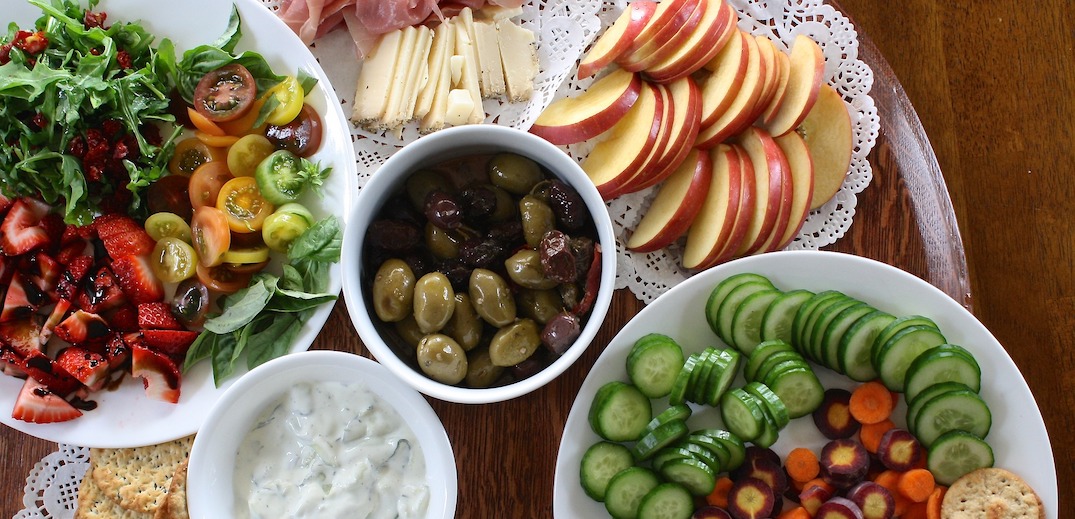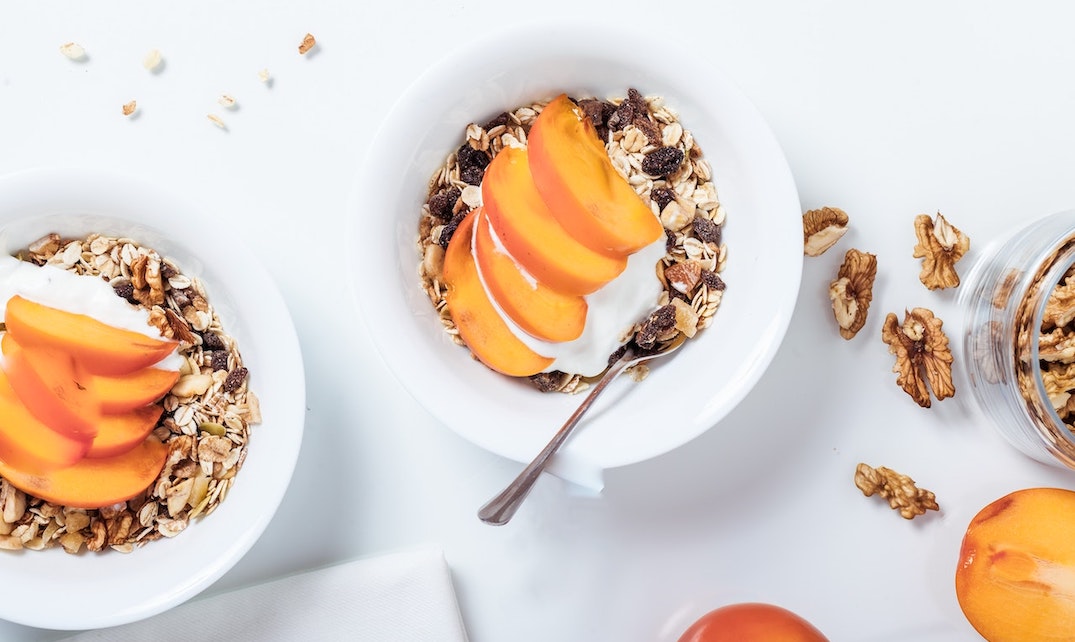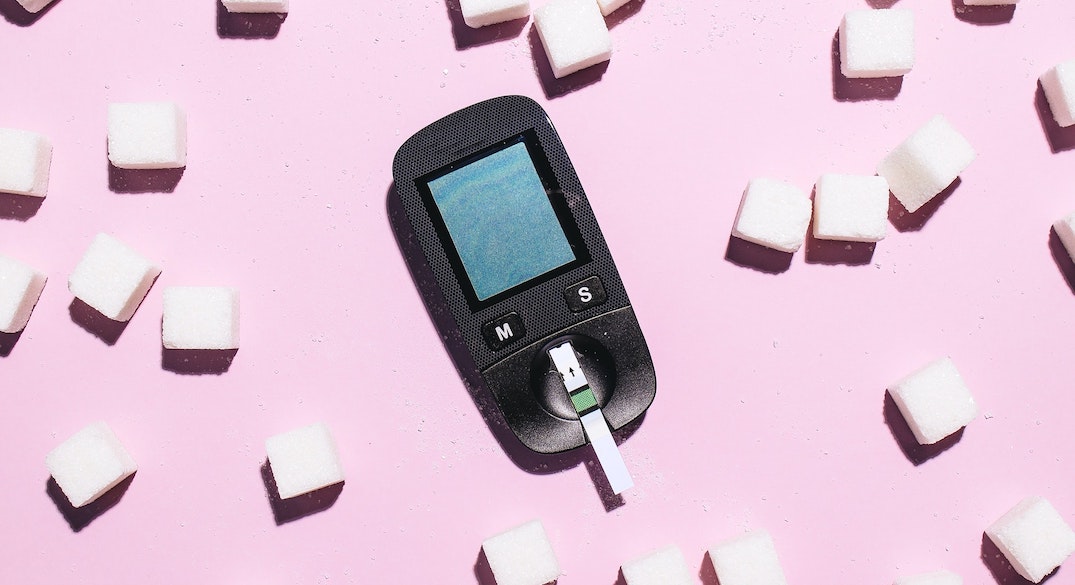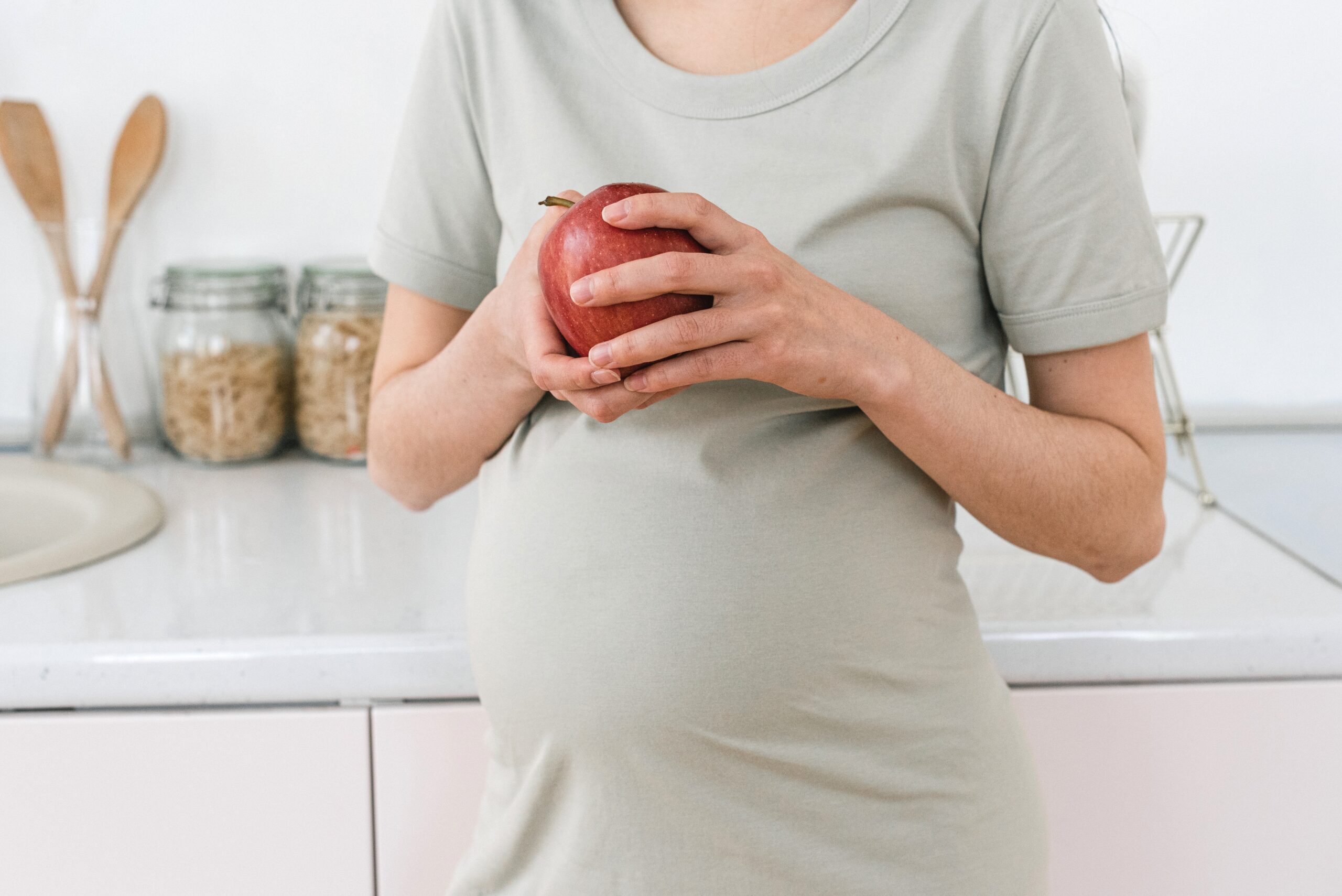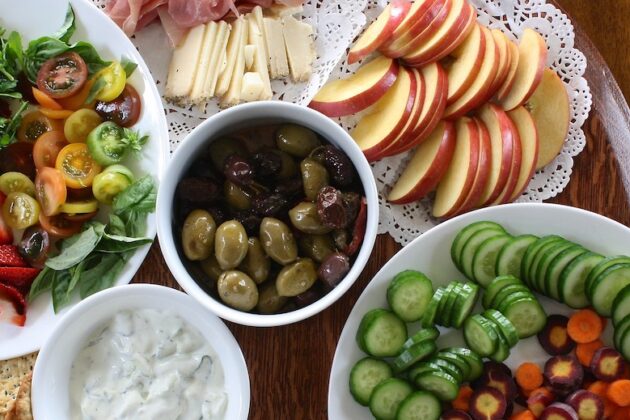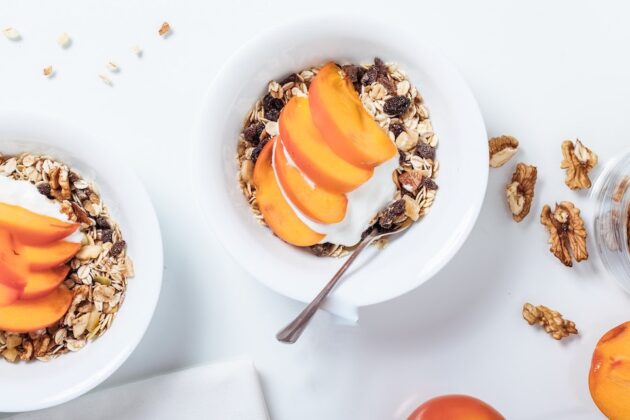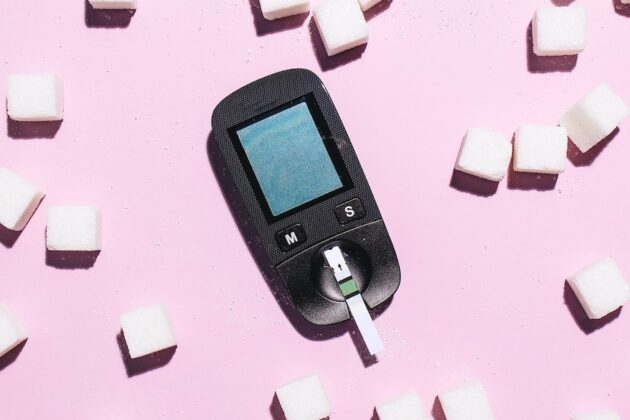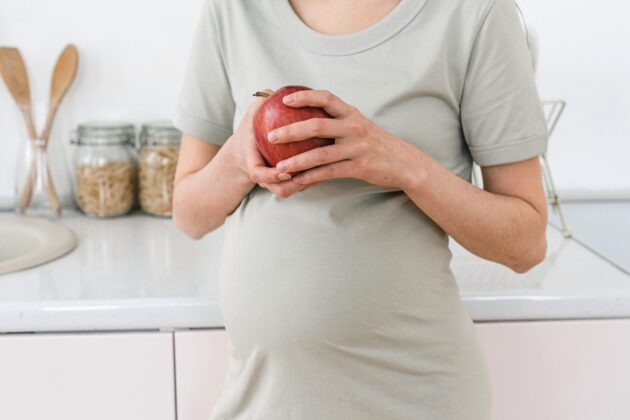25 Snack Ideas for Gestational Diabetes
If you have gestational diabetes, you’ve probably had at least a few worries about if you’re eating the right foods or not.
While it’s fairly easy to meal prep breakfast, lunch, and dinner meals that are safe to eat with gestational diabetes, what about those mid-day snack cravings?
To help you make sure you’re snacking safely with gestational diabetes, we’ve put together a list of 25 ideas that are healthy and easy to make.
25 snack ideas for gestational diabetes
When it comes to eating snacks with gestational diabetes, you should aim for lean protein, healthy fats, and complex carbs.
Here are 25 snack ideas that are safe for those with gestational diabetes:
- Apple slices with peanut butter. The fiber in the apple and the protein in the peanut butter help to slow down the absorption of glucose into the bloodstream.
- Hard-boiled eggs. Eggs are a good source of protein and don’t contain carbohydrates.
- Baby carrots with hummus. Carrots are low in carbohydrates and high in fiber, while hummus is a good source of protein.
- String cheese. Cheese is a good source of protein and doesn’t contain carbohydrates that can spike your blood sugar.
- Greek yogurt with berries. Greek yogurt is high in protein and low in carbohydrates, while berries are a good source of fiber.
- Sugar-free pudding. Pudding made with sugar substitutes can be a low-carbohydrate, low-fat snack.
- Beef jerky. Beef jerky is a good source of protein and doesn’t contain carbohydrates.
- Popcorn. Popcorn is a low-calorie, low-carbohydrate snack, as long as it’s not heavily buttered or salted.
- Cottage cheese with tomatoes. Cottage cheese is high in protein and low in carbohydrates, while tomatoes are a good source of fiber.
- Edamame. Edamame is high in protein and low in carbohydrates.
- Roasted chickpeas. Chickpeas are a good source of fiber and protein and can be roasted for a crunchy snack.
- Almonds. Almonds are a good source of protein and healthy fats and don’t contain carbohydrates.
- Celery with cream cheese. Celery is low in carbohydrates and high in fiber, while cream cheese is a good source of protein.
- Tuna salad with cucumber slices. Tuna is a good source of protein and doesn’t contain carbohydrates, while cucumbers are low in carbs and high in fiber.
- Broccoli florets with ranch dressing. Broccoli is low in carbs and high in fiber, while ranch dressing is a good source of protein.
- Kale chips. Kale is a good source of fiber and can be baked for a crunchy snack.
- Grilled chicken skewers. Chicken is a good source of protein and doesn’t contain carbohydrates.
- Low-fat cheese and whole-grain crackers. Whole-grain crackers are a good source of fiber, while low-fat cheese is a good source of protein.
- Berries with whipped cream. Berries are a good source of fiber, while whipped cream made with sugar substitutes can be a low-carbohydrate snack.
- Roasted almonds with sea salt. Almonds are a good source of protein and healthy fats, while sea salt adds flavor without adding carbohydrates.
- Vegetable soup. Soup made with non-starchy vegetables can be a low-carbohydrate snack.
- Avocado toast on whole-grain bread. Avocado is a good source of healthy fats and doesn’t contain carbohydrates, while whole-grain bread is a good source of fiber.
- Tomato and mozzarella salad. Tomatoes are a good source of fiber, while mozzarella is a good source of protein.
- Baked sweet potato. Sweet potatoes are a good source of fiber and can be baked for a low-carbohydrate snack.
- Turkey roll-ups with lettuce. Turkey is a good source of protein and doesn’t contain carbohydrates, while lettuce is low in carbohydrates and high in fiber.
All of the above snacks are safe for those with gestational diabetes because they are low in carbohydrates and/or high in fiber and protein.
Eating snacks that are low in carbohydrates can help keep blood sugar levels stable, while snacks that are high in fiber and protein can help to slow down the absorption of glucose into the bloodstream.
It’s always a good idea to work with a pregnancy nutritionist or dietitian if you have gestational diabetes. They can help you make sure you’re eating healthy and safe foods, and they can help address any issues that come up.
Here at Zaya Care, we can help you find a gestational diabetes dietitian that can help you select safe snacks and develop a meal plan to properly manage your gestational diabetes.
>> Find other ideas:
- Breakfast Ideas for Gestational Diabetes
- Lunch Ideas for Gestational Diabetes
- Bedtime Snacks for Gestational Diabetes
- Dessert Ideas for Gestational Diabetes
How to choose healthy snacks when you have gestational diabetes
Here are some general tips to follow when choosing snacks if you have gestational diabetes:
- Focus on protein and healthy fats. Protein and healthy fats can help balance blood sugar levels and keep you feeling full. Look for lean meats, eggs, nuts, and legumes for protein, and avocados, nuts, seeds, and fatty fish for healthy fats.
- Monitor portion sizes. Eating too much of anything, even healthy foods, can cause blood sugar levels to rise. Keep portion sizes in check and eat smaller, frequent meals throughout the day.
- Choose whole, unprocessed foods. These foods are high in fiber, which slows glucose absorption in the bloodstream and helps manage blood sugar levels.
- Avoid sugary & refined foods. Steer clear of candy, baked goods, white bread, and other processed foods that can cause quick spikes in blood sugar levels and offer little nutritional value.
- Consult with a registered dietitian. Working with a gestational diabetes dietitian can help you create a personalized meal plan, choose healthy foods, and track your progress over time.

Healthy mom, healthy baby: Get support from a prenatal dietitian
90% of Zaya Care patients pay $0 for one-on-one counseling with a Registered Dietitan
What snacks to avoid with gestational diabetes
To manage gestational diabetes, it’s crucial to be mindful of foods that can rapidly increase blood sugar levels. Here are some snacks to avoid or limit:
- Refined grains. White bread, white pasta, and white rice are processed and stripped of fiber and other nutrients, leading to a rapid rise in blood sugar levels. Choose whole-grain versions instead.
- Sugary drinks. Soda, fruit juice, and sweetened tea or coffee are high in calories and can cause a quick spike in blood sugar levels. Water, unsweetened tea, and black coffee are better beverage options.
- Fruits that are high in sugar. While fruits are generally healthy, some, like bananas, mangoes, and pineapples, can cause a rapid spike in blood sugar levels. Choose lower-sugar fruits like berries or apples and be mindful of portion sizes.
- Highly processed foods. These foods are often high in carbohydrates, sugar, salt, and preservatives, which can cause a quick spike in blood sugar levels. It’s best to opt for whole, unprocessed foods instead.
- Fried foods & high-fat foods. Fast foods, fatty cuts of meat, and full-fat dairy products are often high in calories and can contribute to weight gain, making it more difficult to manage blood sugar levels.
Tips for eating with gestational diabetes
Here are some other general tips for eating with gestational diabetes:
- Opt for more frequent, small meals. Eating three main meals with two to three snacks in between can help regulate blood sugar levels and prevent spikes.
- Choose unprocessed whole foods. Whole foods are high in fiber, which can help slow down glucose absorption in the bloodstream and regulate blood sugar levels.
- Incorporate protein & healthy fats in every meal & snack. Including protein and healthy fats in your diet can help balance blood sugar levels and keep you feeling full for longer. Good sources of protein include lean meats, eggs, nuts, and legumes, while healthy fats can be found in avocados, nuts, seeds, and fatty fish.
- Be mindful of portion sizes. Consuming too much food, even if it’s healthy, can lead to high blood sugar levels. Make sure to watch your portion sizes and eat in moderation.
- Stay hydrated. Drinking enough water and other non-sugary beverages can help flush out excess sugar and maintain healthy blood sugar levels.
- Monitor your blood sugar levels regularly. Checking your blood sugar levels at home can help you understand how different foods impact your body and allow you to adjust your diet accordingly.
- Consult a registered dietitian. A prenatal dietitian can help you design a personalized meal plan that suits your individual needs and assists you in managing your blood sugar levels. They can also offer advice on healthy food choices and monitor your progress over time.
>> Find a gestational diabetes dietitian that accepts your insurance
How working with a gestational diabetes nutritionist can help
Working with a prenatal nutritionist or registered dietitian can be very helpful in managing gestational diabetes. Here are some ways a gestational diabetes nutritionist can help:
- Develop a customized meal plan. A nutritionist can help you create a personalized meal plan that takes into account your unique nutritional needs and food preferences, while also ensuring that your blood sugar levels stay within a healthy range.
- Educate you about portion sizes. A nutritionist can help you understand portion sizes and how to balance your meals to ensure that you’re getting the right amount of nutrients without causing spikes in your blood sugar levels.
- Provide education & support. A nutritionist specializing in gestational diabetes can offer education and support on healthy food choices, how to read food labels, and meal preparation. They can also provide tips on how to manage blood sugar levels during special events or holidays, empowering you to make informed decisions no matter the situation.
- Monitor progress & adjust recommendations. A nutritionist can regularly monitor your blood sugar levels and make adjustments to your meal plan as needed, providing ongoing support and motivation to help you stick to your diet.
- Address other concerns. A nutritionist can also help address other dietary concerns that may be present alongside gestational diabetes, such as food allergies or intolerances, how to incorporate vegetarian or vegan diets, and specific cultural or religious dietary restrictions.
Overall, nutritionists play an important role in helping manage gestational diabetes. Here at Zaya Care, we can help you find a gestational diabetes dietitian that is covered by your insurance. Providers we work with offer online and in-person visits, so you can get the help you deserve in a way that suits your needs and lifestyle.

Healthy mom, healthy baby: Get support from a prenatal dietitian
90% of Zaya Care patients pay $0 for one-on-one counseling with a Registered Dietitan
If you have gestational diabetes, you’ve probably had at least a few worries about if you’re eating the right foods or not.
While it’s fairly easy to meal prep breakfast, lunch, and dinner meals that are safe to eat with gestational diabetes, what about those mid-day snack cravings?
To help you make sure you’re snacking safely with gestational diabetes, we’ve put together a list of 25 ideas that are healthy and easy to make.
25 snack ideas for gestational diabetes
When it comes to eating snacks with gestational diabetes, you should aim for lean protein, healthy fats, and complex carbs.
Here are 25 snack ideas that are safe for those with gestational diabetes:
- Apple slices with peanut butter. The fiber in the apple and the protein in the peanut butter help to slow down the absorption of glucose into the bloodstream.
- Hard-boiled eggs. Eggs are a good source of protein and don’t contain carbohydrates.
- Baby carrots with hummus. Carrots are low in carbohydrates and high in fiber, while hummus is a good source of protein.
- String cheese. Cheese is a good source of protein and doesn’t contain carbohydrates that can spike your blood sugar.
- Greek yogurt with berries. Greek yogurt is high in protein and low in carbohydrates, while berries are a good source of fiber.
- Sugar-free pudding. Pudding made with sugar substitutes can be a low-carbohydrate, low-fat snack.
- Beef jerky. Beef jerky is a good source of protein and doesn’t contain carbohydrates.
- Popcorn. Popcorn is a low-calorie, low-carbohydrate snack, as long as it’s not heavily buttered or salted.
- Cottage cheese with tomatoes. Cottage cheese is high in protein and low in carbohydrates, while tomatoes are a good source of fiber.
- Edamame. Edamame is high in protein and low in carbohydrates.
- Roasted chickpeas. Chickpeas are a good source of fiber and protein and can be roasted for a crunchy snack.
- Almonds. Almonds are a good source of protein and healthy fats and don’t contain carbohydrates.
- Celery with cream cheese. Celery is low in carbohydrates and high in fiber, while cream cheese is a good source of protein.
- Tuna salad with cucumber slices. Tuna is a good source of protein and doesn’t contain carbohydrates, while cucumbers are low in carbs and high in fiber.
- Broccoli florets with ranch dressing. Broccoli is low in carbs and high in fiber, while ranch dressing is a good source of protein.
- Kale chips. Kale is a good source of fiber and can be baked for a crunchy snack.
- Grilled chicken skewers. Chicken is a good source of protein and doesn’t contain carbohydrates.
- Low-fat cheese and whole-grain crackers. Whole-grain crackers are a good source of fiber, while low-fat cheese is a good source of protein.
- Berries with whipped cream. Berries are a good source of fiber, while whipped cream made with sugar substitutes can be a low-carbohydrate snack.
- Roasted almonds with sea salt. Almonds are a good source of protein and healthy fats, while sea salt adds flavor without adding carbohydrates.
- Vegetable soup. Soup made with non-starchy vegetables can be a low-carbohydrate snack.
- Avocado toast on whole-grain bread. Avocado is a good source of healthy fats and doesn’t contain carbohydrates, while whole-grain bread is a good source of fiber.
- Tomato and mozzarella salad. Tomatoes are a good source of fiber, while mozzarella is a good source of protein.
- Baked sweet potato. Sweet potatoes are a good source of fiber and can be baked for a low-carbohydrate snack.
- Turkey roll-ups with lettuce. Turkey is a good source of protein and doesn’t contain carbohydrates, while lettuce is low in carbohydrates and high in fiber.
All of the above snacks are safe for those with gestational diabetes because they are low in carbohydrates and/or high in fiber and protein.
Eating snacks that are low in carbohydrates can help keep blood sugar levels stable, while snacks that are high in fiber and protein can help to slow down the absorption of glucose into the bloodstream.
It’s always a good idea to work with a pregnancy nutritionist or dietitian if you have gestational diabetes. They can help you make sure you’re eating healthy and safe foods, and they can help address any issues that come up.
Here at Zaya Care, we can help you find a gestational diabetes dietitian that can help you select safe snacks and develop a meal plan to properly manage your gestational diabetes.
>> Find other ideas:
- Breakfast Ideas for Gestational Diabetes
- Lunch Ideas for Gestational Diabetes
- Bedtime Snacks for Gestational Diabetes
- Dessert Ideas for Gestational Diabetes
How to choose healthy snacks when you have gestational diabetes
Here are some general tips to follow when choosing snacks if you have gestational diabetes:
- Focus on protein and healthy fats. Protein and healthy fats can help balance blood sugar levels and keep you feeling full. Look for lean meats, eggs, nuts, and legumes for protein, and avocados, nuts, seeds, and fatty fish for healthy fats.
- Monitor portion sizes. Eating too much of anything, even healthy foods, can cause blood sugar levels to rise. Keep portion sizes in check and eat smaller, frequent meals throughout the day.
- Choose whole, unprocessed foods. These foods are high in fiber, which slows glucose absorption in the bloodstream and helps manage blood sugar levels.
- Avoid sugary & refined foods. Steer clear of candy, baked goods, white bread, and other processed foods that can cause quick spikes in blood sugar levels and offer little nutritional value.
- Consult with a registered dietitian. Working with a gestational diabetes dietitian can help you create a personalized meal plan, choose healthy foods, and track your progress over time.

Healthy mom, healthy baby: Get support from a prenatal dietitian
90% of Zaya Care patients pay $0 for one-on-one counseling with a Registered Dietitan
What snacks to avoid with gestational diabetes
To manage gestational diabetes, it’s crucial to be mindful of foods that can rapidly increase blood sugar levels. Here are some snacks to avoid or limit:
- Refined grains. White bread, white pasta, and white rice are processed and stripped of fiber and other nutrients, leading to a rapid rise in blood sugar levels. Choose whole-grain versions instead.
- Sugary drinks. Soda, fruit juice, and sweetened tea or coffee are high in calories and can cause a quick spike in blood sugar levels. Water, unsweetened tea, and black coffee are better beverage options.
- Fruits that are high in sugar. While fruits are generally healthy, some, like bananas, mangoes, and pineapples, can cause a rapid spike in blood sugar levels. Choose lower-sugar fruits like berries or apples and be mindful of portion sizes.
- Highly processed foods. These foods are often high in carbohydrates, sugar, salt, and preservatives, which can cause a quick spike in blood sugar levels. It’s best to opt for whole, unprocessed foods instead.
- Fried foods & high-fat foods. Fast foods, fatty cuts of meat, and full-fat dairy products are often high in calories and can contribute to weight gain, making it more difficult to manage blood sugar levels.
Tips for eating with gestational diabetes
Here are some other general tips for eating with gestational diabetes:
- Opt for more frequent, small meals. Eating three main meals with two to three snacks in between can help regulate blood sugar levels and prevent spikes.
- Choose unprocessed whole foods. Whole foods are high in fiber, which can help slow down glucose absorption in the bloodstream and regulate blood sugar levels.
- Incorporate protein & healthy fats in every meal & snack. Including protein and healthy fats in your diet can help balance blood sugar levels and keep you feeling full for longer. Good sources of protein include lean meats, eggs, nuts, and legumes, while healthy fats can be found in avocados, nuts, seeds, and fatty fish.
- Be mindful of portion sizes. Consuming too much food, even if it’s healthy, can lead to high blood sugar levels. Make sure to watch your portion sizes and eat in moderation.
- Stay hydrated. Drinking enough water and other non-sugary beverages can help flush out excess sugar and maintain healthy blood sugar levels.
- Monitor your blood sugar levels regularly. Checking your blood sugar levels at home can help you understand how different foods impact your body and allow you to adjust your diet accordingly.
- Consult a registered dietitian. A prenatal dietitian can help you design a personalized meal plan that suits your individual needs and assists you in managing your blood sugar levels. They can also offer advice on healthy food choices and monitor your progress over time.
>> Find a gestational diabetes dietitian that accepts your insurance
How working with a gestational diabetes nutritionist can help
Working with a prenatal nutritionist or registered dietitian can be very helpful in managing gestational diabetes. Here are some ways a gestational diabetes nutritionist can help:
- Develop a customized meal plan. A nutritionist can help you create a personalized meal plan that takes into account your unique nutritional needs and food preferences, while also ensuring that your blood sugar levels stay within a healthy range.
- Educate you about portion sizes. A nutritionist can help you understand portion sizes and how to balance your meals to ensure that you’re getting the right amount of nutrients without causing spikes in your blood sugar levels.
- Provide education & support. A nutritionist specializing in gestational diabetes can offer education and support on healthy food choices, how to read food labels, and meal preparation. They can also provide tips on how to manage blood sugar levels during special events or holidays, empowering you to make informed decisions no matter the situation.
- Monitor progress & adjust recommendations. A nutritionist can regularly monitor your blood sugar levels and make adjustments to your meal plan as needed, providing ongoing support and motivation to help you stick to your diet.
- Address other concerns. A nutritionist can also help address other dietary concerns that may be present alongside gestational diabetes, such as food allergies or intolerances, how to incorporate vegetarian or vegan diets, and specific cultural or religious dietary restrictions.
Overall, nutritionists play an important role in helping manage gestational diabetes. Here at Zaya Care, we can help you find a gestational diabetes dietitian that is covered by your insurance. Providers we work with offer online and in-person visits, so you can get the help you deserve in a way that suits your needs and lifestyle.

Healthy mom, healthy baby: Get support from a prenatal dietitian
90% of Zaya Care patients pay $0 for one-on-one counseling with a Registered Dietitan





